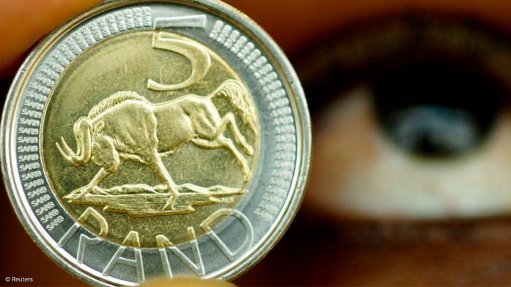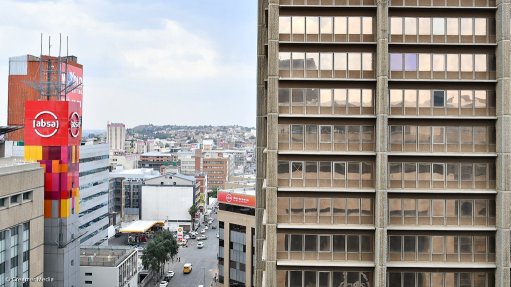Multilateralism on life support
A question was put to me last week: Where will Africa be in ten years? Any attempt at future analysis shaping involves looking at global, pan-African and regional institutions that have shaped the post-independence period. Prime among these is the UN, which recently entered budget negotiations for the next period with expectations that it is facing budget cuts of 25%.
The negotiations are of particular importance to Africa, which absorbs about 35% of the UN’s yearly budget. They take place at a time when the UN faces deliberate and systematic undermining by major member countries. In today’s world, where an unhealthy populism is taking root, the UN goals of peace, human rights, humanitarian aid, development and international law are “swear words”, according to one international relations observer.
Looking back on the UN’s 80-year history, the organisation’s secretaries-general were synonymous with nearly all major breakthroughs in seemingly intractable global problems and crises. Sweden’s Dag Hammarskjöld – associated with the Suez crisis – was killed in an air crash in Zambia as he turned his attention to the secession crisis in Zaire, now the Democratic Republic of Congo (DRC). Egyptian national Boutros Boutros-Ghali was known for developing a manual for post-conflict peace-building, including deploying multinational peacekeeping forces.
Ghali negotiated the Camp David accords between Israel and Egypt but refused to recognise Rwanda’s genocide for what it was, leaving it to Ghana’s Koffi Annan to develop the ‘responsibility to protect’ (R2P) doctrine. This binds member countries to protect populations from genocide, war crimes, ethnic cleansing and crimes against humanity. It’s worth remembering, too, the multifaceted role the UN played in ending the wars between Eritrea and Ethiopia, and the conflict in Sudan, facilitating the secession of both Eritrea and South Sudan. Annan’s extensive administrative reforms eased anti-UN criticism for corruption and nepotism and earned him and the UN a Nobel Peace prize for their “work for a better organised and more peaceful world”.
But that more peaceful world seems another world away. What has become clear by its absence is what the UN secretaries-general and related institutions depend on for their effectiveness: funding from, and a benign and supportive backstop of, the UN’s powerful member nations, including the US. The benign support of the UN as a mechanism of international law and restraint provides protection for smaller, poorer member nations. In a world where might is right, small nations are insecure and become vulnerable. The UN and associated multilateral institutions have faced sustained attack since a unilateralist- inclined George W Bush bamboozled it with the first massive ‘fake news’ event to get the UN to back an attack on Iraq. The subsequent invasion of Iraq had a disastrous impact – for peace, human rights, humanitarian aid development and international law – and began the long, painful undermining of the UN itself. The consequences are manifest in Russia’s illegal invasion of Ukraine and in Rwanda’s several incursions into the eastern DRC.
Nowhere has undermining of the UN been more obvious than in its absence from the August 15 so-called Anchorage (Alaska, US) summit, where US President Donald Trump rolled out a red carpet for an indicted war criminal, Russia’s Vladimir Putin, to discuss an unrepresented third country. The process was doomed to fail in the absence of a legitimising trusted framework – such as one sanctioned by the UN. Without it, Trump – the leader of a $30-trillion economy – came away looking weak against a much inferior foe. Putin – the leader of a mid-sized power and a $2-trillion economy roughly the size of Italy, the UK or Brazil – gave nothing. Trump left with no concessions from Russia, no progress to ending Putin’s war, which, in UN terms, is an illegal war of aggression against an independent sovereign State.
The shocking impact of the US administration’s malevolence towards the UN and its inherent multilateralism will be felt worldwide for years to come – or at least until US mid-terms in November 2026 when US voters will get to translate Trump’s historically low approval ratings into an electoral drubbing. But that may be too late to stem the Trump administration’s impact. The UN is reeling from Trump’s withdrawal from the Paris Agreement on climate change and more recently the World Health Organisation, leaving it with a $2.5-billion shortfall in 2027. Trump’s “drill, baby, drill” attitude and his administration’s climate change scepticism contributed to the UN’s failure to reach agreement on August 5 over a global treaty to combat plastic pollution. Representatives of 185 countries battled over phasing out plastics altogether or continuing the fossil fuel production that underpins plastics and improving recycling. This will have a direct impact on several African countries – mainly on the Indian Ocean side – which see tonnes of plastic wash up on their beaches after every major weather event.
Africa is looking to become part of the solution to the UN’s budget problems. Rwanda and Kenya are vying to offer locations to various UN institutions that are cheaper than New York and Geneva. While UN officials say the proposal is still under discussion, if it went ahead, it would represent a symbolic shift. Decision-making would move closer to the communities most in need of humanitarian relief and Africa would play a bigger role in shaping humanitarian and development policies. Under discussion are three major UN agencies – Unicef, the UN Population Fund and UN Women. These may relocate to Nairobi to join the UN Environment Programme and the UN Settlements Programme, potentially injecting billions of Kenyan shillings into the local economy and cementing the city’s position as Africa’s leading diplomatic, technological and legal hub. However, President William Ruto’s authoritarian tendencies and his own assault on domestic institutions may count against Kenya for the time being.
The UN’s twilight years may be upon us as its traditional and major funders cut back on development financing – the US for populist ideological reasons, and Europe’s North Atlantic Treaty Organisation countries seeking to spend 5% of GDP on defence in response to Russia’s invasion of Ukraine. Equally possible is that Trumpism may highlight the dangerous vacuum created by US unilateralism and see UN member States revitalise the institution and push for greater reforms, including a wider, fairer distribution of seats on the UN Security Council and proper representation for a continent of 54 out of 193 member countries. In ten years, Africa may have assumed a far greater role in global multilateral institutions.
Article Enquiry
Email Article
Save Article
Feedback
To advertise email advertising@creamermedia.co.za or click here
Press Office
Announcements
What's On
Subscribe to improve your user experience...
Option 1 (equivalent of R125 a month):
Receive a weekly copy of Creamer Media's Engineering News & Mining Weekly magazine
(print copy for those in South Africa and e-magazine for those outside of South Africa)
Receive daily email newsletters
Access to full search results
Access archive of magazine back copies
Access to Projects in Progress
Access to ONE Research Report of your choice in PDF format
Option 2 (equivalent of R375 a month):
All benefits from Option 1
PLUS
Access to Creamer Media's Research Channel Africa for ALL Research Reports, in PDF format, on various industrial and mining sectors
including Electricity; Water; Energy Transition; Hydrogen; Roads, Rail and Ports; Coal; Gold; Platinum; Battery Metals; etc.
Already a subscriber?
Forgotten your password?
Receive weekly copy of Creamer Media's Engineering News & Mining Weekly magazine (print copy for those in South Africa and e-magazine for those outside of South Africa)
➕
Recieve daily email newsletters
➕
Access to full search results
➕
Access archive of magazine back copies
➕
Access to Projects in Progress
➕
Access to ONE Research Report of your choice in PDF format
RESEARCH CHANNEL AFRICA
R4500 (equivalent of R375 a month)
SUBSCRIBEAll benefits from Option 1
➕
Access to Creamer Media's Research Channel Africa for ALL Research Reports on various industrial and mining sectors, in PDF format, including on:
Electricity
➕
Water
➕
Energy Transition
➕
Hydrogen
➕
Roads, Rail and Ports
➕
Coal
➕
Gold
➕
Platinum
➕
Battery Metals
➕
etc.
Receive all benefits from Option 1 or Option 2 delivered to numerous people at your company
➕
Multiple User names and Passwords for simultaneous log-ins
➕
Intranet integration access to all in your organisation


















